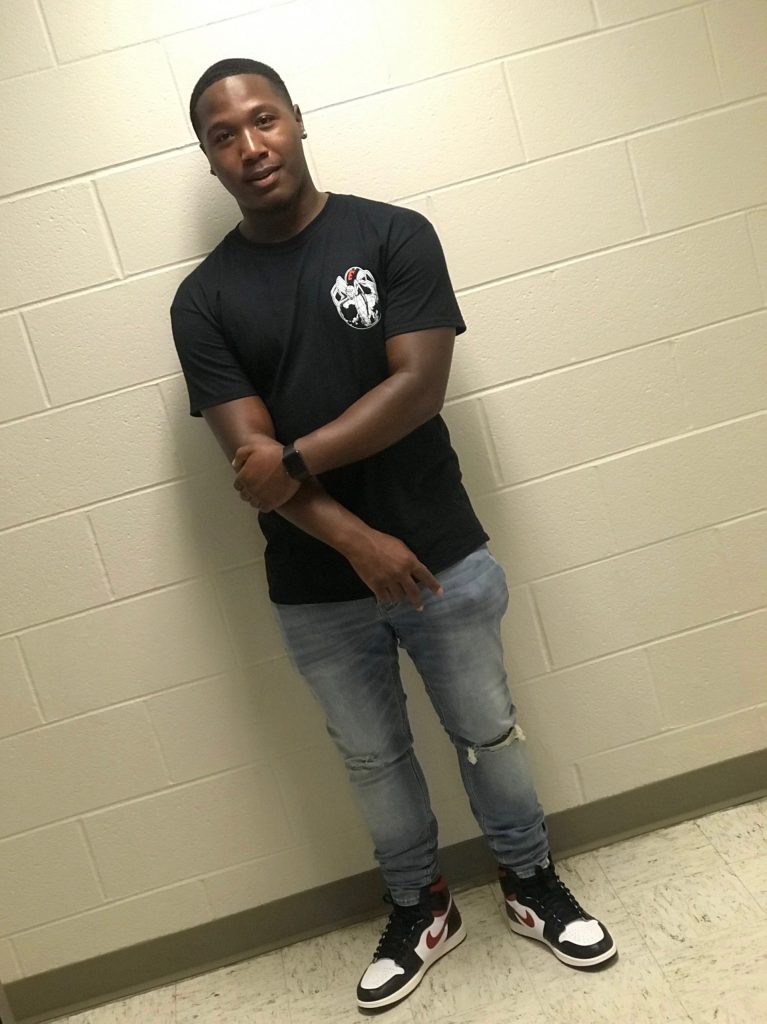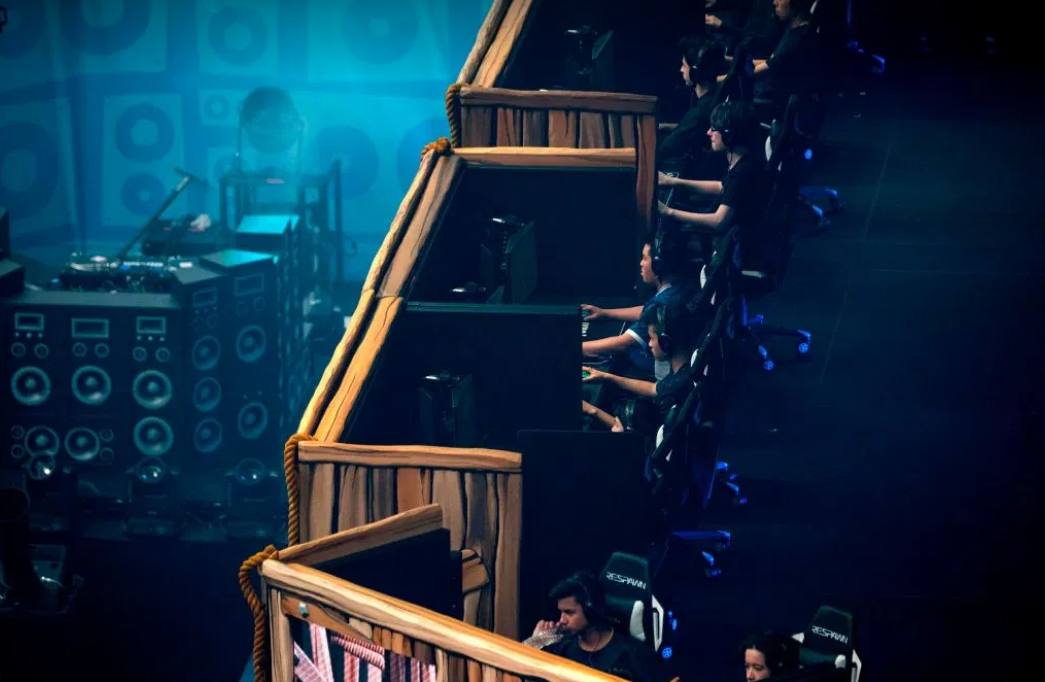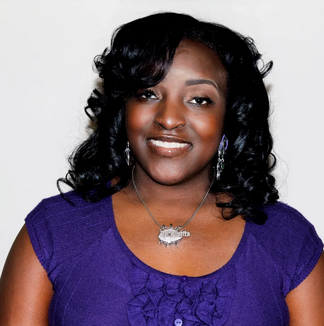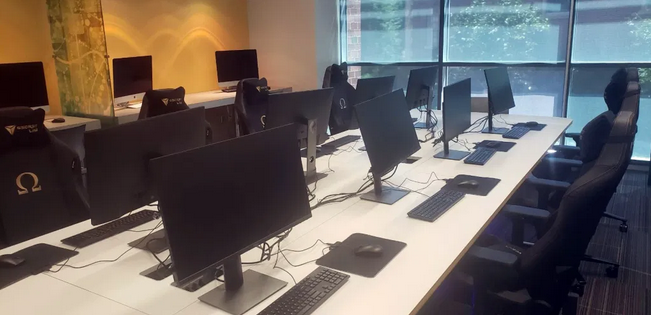By Delece Smith-Barrow/The Hechinger Report
The fall semester for most college students won’t look like any semester in the past, and that’s not such a bad thing for Keenan Johnson. He attends one of North Carolina’s historically black colleges and universities, Johnson C. Smith University, which is offering classes remotely because of the COVID-19 pandemic. Johnson isn’t thrilled to be logging into his courses from home, but he is excited for one of the university’s newest student groups – the JCSU Esports Club.
“We’re basically making history at HBCUs,” said Johnson, a 20-year-old junior.
 Keenan Johnson by Keenan Johnson
Keenan Johnson by Keenan Johnson
eSports, also known as competitive video game playing, have recently boomed into a billion-dollar industry, and college students are some of the biggest players. But eSports at historically black colleges and universities have been slow to catch on, and Johnson is excited to see that change. Educators at those colleges hope so, too, although for different reasons.
Students highly skilled at playing games like NBA2K, Fortnite and Madden NFL can win scholarships, join leagues and associations for college eSports programs and potentially become professional gamers.
 Players compete in the Duos competition during the 2019 Fortnite World Cup Finals in New York City/Johannes Eisele, AFP via Getty Images
Players compete in the Duos competition during the 2019 Fortnite World Cup Finals in New York City/Johannes Eisele, AFP via Getty Images
But for several historically black colleges and universities, it’s not all about fun and games. These institutions see Black eSports involvement as a stepping-stone toward jobs and internships for their students, as well.
So this school year, they are launching eSports classes and joining eSports organizations and leagues that will allow students to improve their gaming skills, while also networking with tech companies. They are offering courses in marketing, communications and tournament management, all within the eSports industry.
This month, Johnson C. Smith started offering an eSports and gaming management minor. The university also opened an eSports lab that can comfortably seat 25 gamers. In August, Florida Memorial University hired a sports marketing pro to develop curriculum around eSports, augmented reality, virtual reality and other topics that can help students thrive in the eSports ecosystem. In July 2019, Hampton University received a $340,658 grant to build an eSports lab.
Soon, Black eSports clubs and teams at historically black institutions will be able to compete against each other in a new organization designed just for them: The Black Collegiate Gaming Association. This fall it will host an eSports academy to educate HBCU students about the industry. Sixteen historically black institutions have signed on.
“We want them to be able to compete professionally and start earning and winning dollars that could help support keeping them in school, and also help bring dollars back to the university,” said Keshia Walker, chairman and founder of the Black Collegiate Gaming Association.
 Keshia Walker/Insights Marketing
Keshia Walker/Insights Marketing
The association is also working with corporate partners such as GameStop, Intel and HyperX to help students get internships and work experience on the corporate side of eSports, Walker said.
The job opportunities in eSports are numerous.
“That’s one of the greatest things about eSports: Your only career path in the space isn’t just to play the game,” said William Collis, author of The Book of Esports.
There are team managers, coaches, dieticians, wellness advisers and eSports psychologists, plus people who can film or plan events, as well as edit videos, he said.
Related: HBCUs open their doors wider to international students
The Black Collegiate Gaming Association launched in May, but three major collegiate eSports associations have been around for years. The Collegiate Star League launched in 2009, and now works with about 1,800 colleges and universities. Tespa, a collegiate gaming association that has more than 270 student chapters at big-name institutions such as the University of Virginia and University of Michigan, is about a decade old. And the National Association of Collegiate Esports, launched in 2016, has about 170 member schools.
These organizations have primarily emphasized expertise in playing video games. The Black Collegiate Gaming Association hopes to marry such skills with the book smarts needed to work in the corporate side of the eSports industry. The HBCUs in the association must commit to making Black eSports more than an extracurricular activity by offering academic eSports classes.
Historically black institutions that aren’t in the BCGA are also incorporating eSports classes into their curricula. At Johnson C. Smith, a private HBCU with about 1,400 undergraduates, students taking eSports classes can learn how to work in the industry without being a gamer. Its new eSports and gaming minor will consist of seven classes. Students will learn about trends in eSports as well as other topics that will help them if they aren’t players but want to work in this field.
“In other words, how do you go about organizing, planning, executing eSports tournaments and events?” said BerNadette Lawson-Williams, a professor of sport management at the university.
This academic year, Tennessee State University, a charter member of the Black Collegiate Gaming Association, is taking a different approach – building out an Ssports curriculum that focuses on how Ssports connect with traditional forms of education.
Related: HBCUs are leading centers of education, so why are they treated like second-class citizens?
“We wanted to look at eSports as a new strategy in enhancing and improving teaching and learning,” said Robbie Melton, associate vice president for smart technology innovation for global initiatives at the university. Video games and eSports can be used to help students of all ages improve basic academic skills, she said. Melton, along with her co-teacher Effua Ampadu, is teaching a course on the rise of eSports and gamification in higher education.
“If something like Candy Crush can gross a billion dollars, and people are on it constantly, regardless of age, why can’t we take that same technology concept and apply it to math, English, reading and writing, across all of the disciplines?” Melton said.
At Florida Memorial University, eSports classes will be a part of a larger curriculum, within the university’s computer science department, focused on technology and innovation, said Marc Williams, a global scholar-practitioner at the university who came on board in August. Before arriving at FMU, Williams worked in sports marketing for more than two decades and was a visiting scholar at Louisiana State University Eunice, a predominantly white institution. In this moment, he thought it necessary to share his business savvy with Black college students.
“When George Floyd died, to me it just made sense to be at an HBCU,” he said. After talking with the president of Florida Memorial University, Jaffus Hardrick, about the importance of recruiting Black men for college and helping them graduate, Williams decided to go to FMU. “I could either be part of the solution and using the eSports and the technology piece to get them to come to school, or I can just go to these white colleges that have these huge budgets, and optically be at those schools and do something there.”
Kentucky State University, which is also a charter member of the Black Collegiate Gaming Association, has a different approach to video games than many of its peers. Its students learn how to make games. Students can choose video game development as a concentration for computer science majors. They learn about topics such as two-dimensional game programming, computer graphics and software engineering for gamers.
“It’s pretty much, and not surprisingly so, our most popular concentration,” said Jens Hannemann, an associate professor in the university’s computer science department.
Related: Many HBCUs are teetering between surviving and thriving
Esports has a global audience of players and fans who are willing to invest in games. In 2019, there were 885 major eSports events around the world that generated about $56.3 million in ticket revenues, according to the market research firm Newzoo. That year, prize money totaled about $167 million, Newzoo reported. Global eSports generated $950.6 million in revenue in 2019, and that figure is expected to reach $1.1 billion this year.
Colleges and their students can get some of that cash. Institutions can get money for esports labs, equipment and other tools needed to educate students, and can profit from competitions. “The eSports tournament can bring in such a significant increase in revenue to the university that it will give schools the opportunity to give students a better experience within its program,” David C. Hughes and W. Timothy Orr wrote in The Sport Journal.
Some non-HBCU institutions, such as New England College in New Hampshire and Becker College in Massachusetts, already have tech companies sponsoring their eSports clubs and teams. At Johnson C. Smith, RIG and Nacon Gaming, which makes video game accessories (such as controllers and keyboards), provided headsets for the eSports lab. Riot Games, which makes one of the most popular eSports games, League of Legends, donated gaming chairs.
 The eSports lab at Johnson C. Smith University/StealthEnomics
The eSports lab at Johnson C. Smith University/StealthEnomics
Students can win college scholarships for gaming, which typically range between $500 and $8,000, according to Next College Student Athlete, which helps athletes of all kinds get recruited by colleges.
“We want to start building, creating, training professional gamers, and also corporate executives and leaders, to start working on both sides of the games,” said Walker, who’s a graduate of Florida A&M University, another historically black institution.
At Johnson C. Smith, Keenan Johnson wants to take some eSports classes, but that will probably have to wait until the spring semester. He’s majoring in information systems engineering and carrying an 18-credit course load, plus working at an Aldi grocery store. He’s also the president of the JCSU Esports Club. Since high school, he’s thought about creating video games. And now that eSports can be a part of his college experience, he feels hopeful about making this ambition a reality.
“I feel like I can actually achieve this,” he said.
This post was produced by The Hechinger Report, a nonprofit, independent news outlet focused on innovation and inequality in education.
–
Comments welcome.
Posted on October 6, 2020


